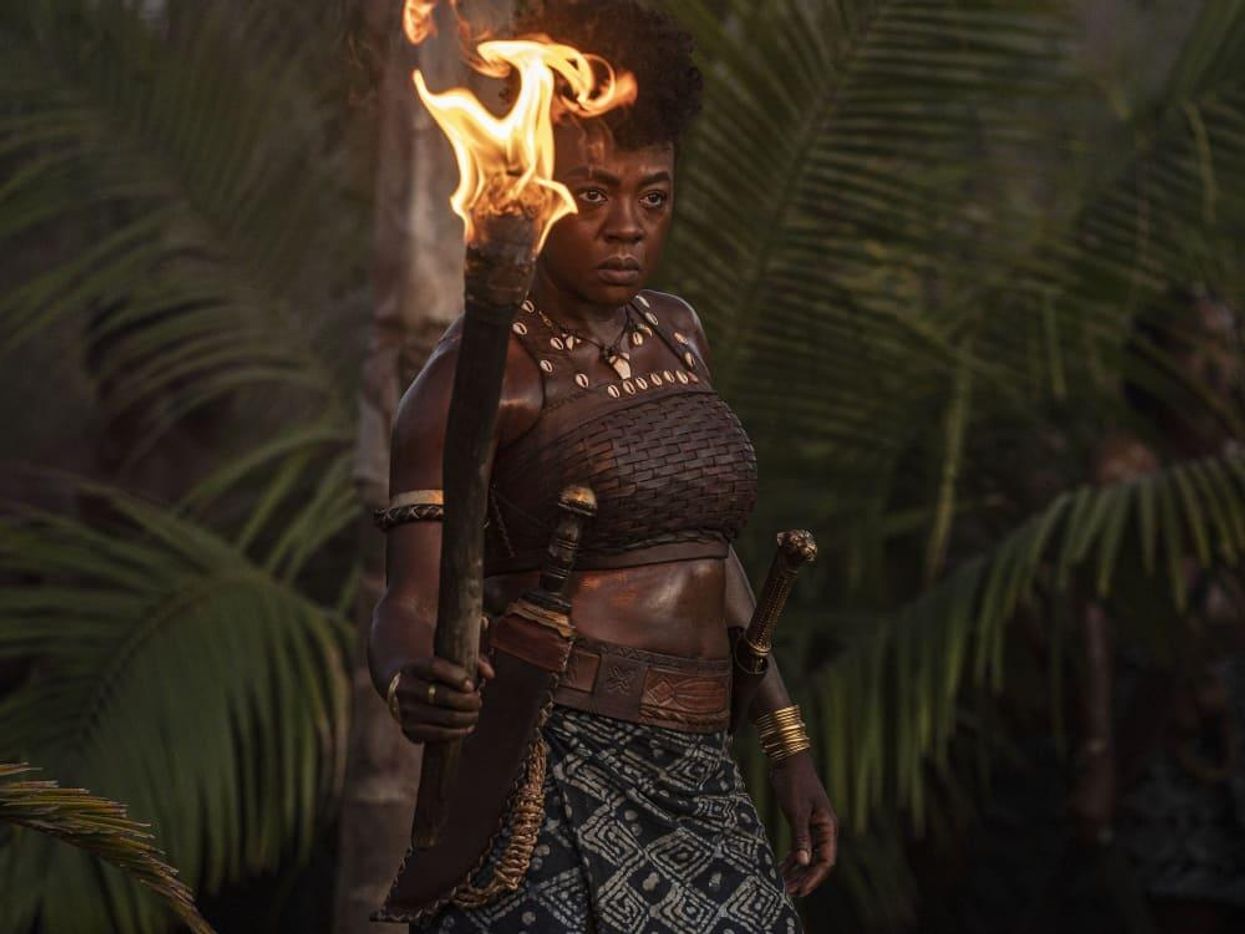Movie Review
The Woman King shows strength of female-fronted armies and movies
One of the more striking aspects of 2018’s Black Panther was the Dora Milaje, the all-female army that served King T’Challa in Wakanda. What many may not know is that group was inspired by a real-life group of women warriors from the kingdom of Dahomey, which was located in what is now known as the West African nation of Benin for over 300 years.
That actual history — or a fictionalized version of it — comes to life in the new film The Woman King. The titular character is General Nanisca (Viola Davis), who leads a group called the Agojie, who protect Dahomey and King Ghezo (John Boyega). Nanisca is one of the leading contenders to become the Kpojito, aka Woman King, of Dahomey, a honorific bestowed by the king on a woman who would be considered his equal.
Much of the film is devoted to Nawi (Thuso Mbedu), a girl who’s turned over to the Agojie by her father after refusing an arranged marriage. Nawi and other new potential soldiers go through intense training to be up to the standards of the group, which must take on rival groups in the area like the Oyo Empire, as well as protect Dahomey from the ever-encroaching threat of slave traders.
Directed by Gina Prince-Bythewood and written by Dana Stevens, the film is at its most successful when dealing with the Agojie instead of the internal and external politics of Dahomey. The Agojie are full of interesting characters, including Nanisca, Nawi, Izogie (Lashana Lynch), Amenza (Sheila Atim), and Ode (Adrienne Warren). The film flourishes when showing their conversations, fighting skills, and camaraderie.
Things get bogged down a bit when the story expands. It’s mentioned that, as progressive for their time as they were, Dahomey also aided and abetted the slave trade, even selling people from the Oyo and elsewhere. The thorniness of that revelation is never truly explored, something that becomes even more noticeable when two slave traders — Santo Ferreira (Hero Fiennes Tiffin) and Malik Diallo (Jordan Bolger) — become a big part of the story. Malik, the son of a slave and a slave trader, is even presented as a possible romantic interest for Nawi, a subplot that’s wholly unnecessary.
The battle scenes are on par with any recent good action movie, staged well by Prince-Blythewood and Fight Choreographer Jénel Stevens. As is becoming more common, especially with female-focused movies, the crew is comprised of many women, including Davis, Maria Bello (who also has a story credit), and Cathy Schulman as producers. The attention paid to ensuring all of the female actors are represented well throughout the film is clear and appreciated.
Davis is as impressive as actors come, but this role brings something completely different out of her. She is the picture of strength in both demeanor and physique, embodying the part of a general in every way one could imagine. The rest of the Agojie are also fantastic, especially Mbedu, Lynch, and Atim, with their chemistry together making them instantly likable. The men are fine, although Boyega makes for a less-than-compelling king.
The Woman King is yet more proof that, given the opportunity, women can perform as well — if not better — than their male counterparts at stereotypically male pursuits. The real-life historical basis for this particular story brings that reality into even further relief.
---
The Woman King opens in theaters on September 16.




